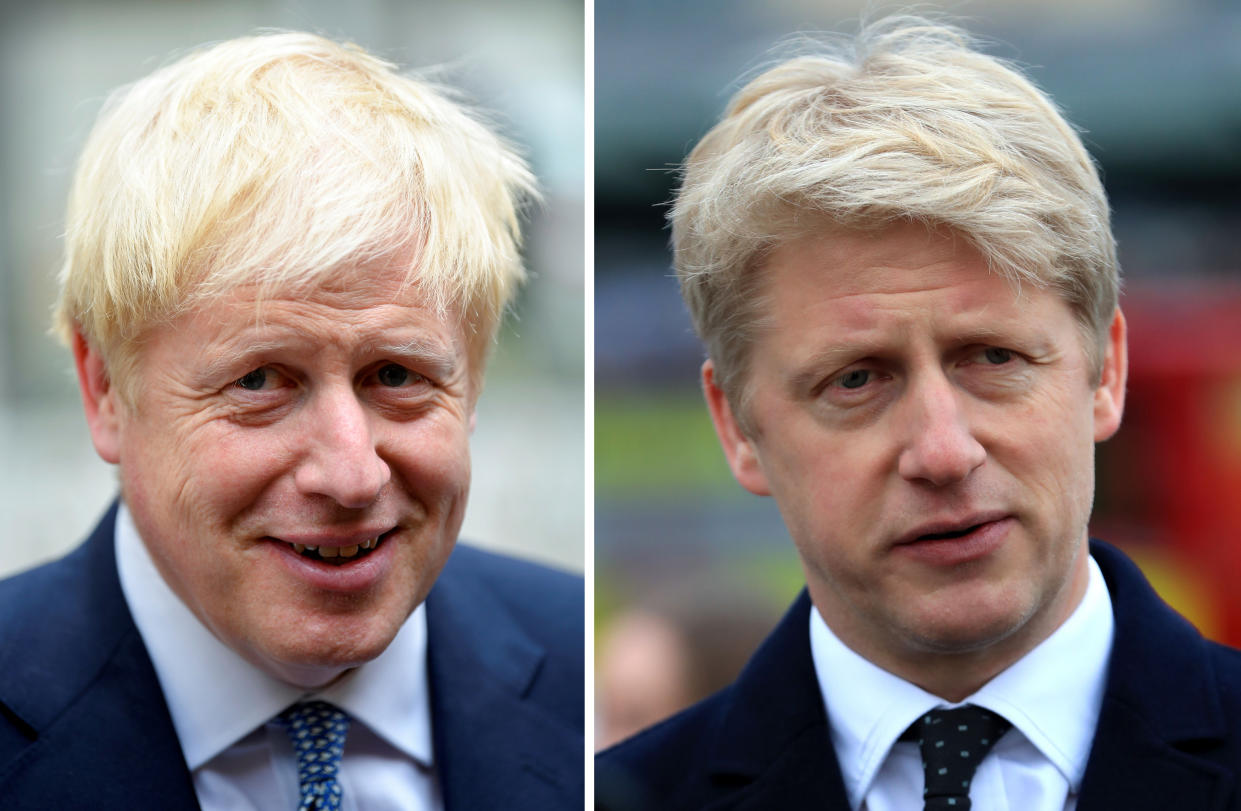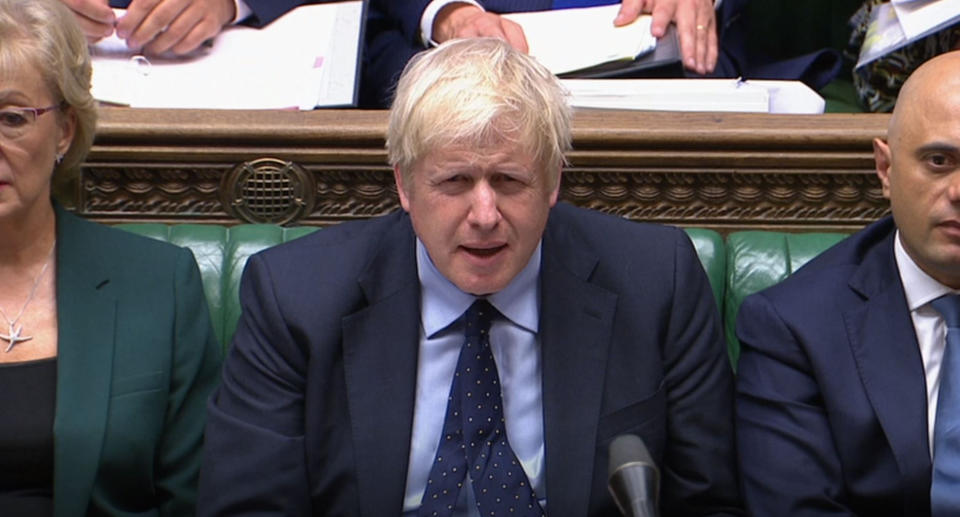Johnson: I’d rather be dead in a ditch than delay Brexit

Boris Johnson has been dealt another blow after his brother announced he was quitting the Government and standing down as an MP.
But in a speech on Thursday afternoon, Mr Johnson said: “I'd rather be dead in a ditch than delay Brexit”.
It comes the day after the Prime Minister lost two key votes in the Commons after MPs voted to block no deal then rejected an early general election.
It’s been an honour to represent Orpington for 9 years & to serve as a minister under three PMs. In recent weeks I’ve been torn between family loyalty and the national interest - it’s an unresolvable tension & time for others to take on my roles as MP & Minister. #overandout
— Jo Johnson (@JoJohnsonUK) September 5, 2019
Jo Johnson, who was a senior minister attending meetings of the Cabinet, said there was an "unresolvable tension" and he had recently been "torn between family loyalty and the national interest".
He announced on Twitter he was quitting his role as Universities Minister and would stand down as MP for Orpington.
Jo Johnson is pro-European and has previously called for a second referendum, a position that puts him at odds with the Prime Minister, who has vowed to leave the EU on October 31 with or without a Brexit deal.
The resignation comes after MPs hoping to block a no-deal Brexit were given yet another lifeline in the early hours of the morning after a breakthrough in the House of Lords.
The legislation to delay Brexit rather than leave without a deal - a bill Boris Johnson said would "scupper negotiations" - passed all stages in the Commons on Wednesday.

There were fears the Bill could have been stalled by filibustering in the Lords, with Labour peer and leading lawyer Baroness Kennedy of The Shaws accusing Tory peer Lord True, who had submitted a raft of amendments to the motion, of time-wasting.
However, after sitting until 1.30am on Thursday, chief whip Lord Ashton of Hyde said all stages of the European Union (Withdrawal) (No. 6) Bill will be completed by 5pm on Friday.
He told peers: “We have also received a commitment from the chief whip in the House of Commons that Commons consideration of any Lords amendments will take place on Monday and it is the Government's intention that the Bill be ready for Royal Assent.”
The late night debate capped a day of high drama in Westminster where the Prime Minister was defeated over the bill to block no deal and then again on his plan for a snap general election.
Read more from Yahoo News UK:
Labour MP applauded after tearing into Boris Johnson's letterbox comments
Boris Johnson appears to call Jeremy Corbyn a 'big girl's blouse'
Dominic Cummings 'goads Jeremy Corbyn’ over general election
Mr Johnson had called for a poll to be held on October 15 but Labour and other opposition MPs refused to back the bid while the risk of a no-deal remained.
In a hint he could seek a further vote to force an election, Mr Johnson issued a direct plea to Jeremy Corbyn's MPs as he accused him of being "the first Leader of the Opposition in the democratic history of our country to refuse the invitation to an election”.
"I urge his colleagues to reflect on what I think is the unsustainability of this position overnight and in the course of the next few days," Mr Johnson told the Commons.
The Labour leader had said the Bill must be passed through the Lords and have received Royal Assent before he would entertain the thought of heading to the polls.
He said: "Let the Bill pass and have Royal Assent and then we can have a general election.”
Meanwhile, Mr Johnson was facing continued criticism after Tory MPs - including two former chancellors and the grandson of Winston Churchill - were ejected from the party because they rebelled by helping the effort to prevent a no-deal.
The PM defended the move, telling ITV's Peston: "These are friends of mine and believe me I take absolutely no joy in any of it but it was very sad and surprising that they should choose to undermine the UK's ability to get a deal.”
What is filibustering?
It is the process by which MPs or peers waste time during a debate to frustrate the progress of legislation. There is a certain amount of time allocated for each Bill to progress and, through making long speeches, raising procedural points or tabling amendments, legislation or motions can be "talked out" and not find their way into law.
Could this have happened on Wednesday?
Yes. Some pro-Government lords could have tabled a number of amendments or made long speeches which could have prevented the Bill preventing a no-deal Brexit on October 31 from becoming law.
Has filibustering happened before?
Yes. A number of private members bills have fallen victim to the parliamentary clock running out. John Nicolson's bill - the Sexual Offences (Pardons) Bill - which would have pardoned historic convictions of homosexuality, was talked out by then justice minister Sam Gyimah in October 2016, while Conservative MP Philip Davies talked out a bill intended to prevent carers from having to pay car parking charges at hospitals.
Could filibustering be stopped?
A Commons Procedure Committee report from 2016 suggested that those chairing debates - the Speaker or a deputy - should consider exercising their powers to enforce time limits on speeches to prevent a bill from falling by the wayside owing to too much chatter.

 Yahoo News
Yahoo News 

